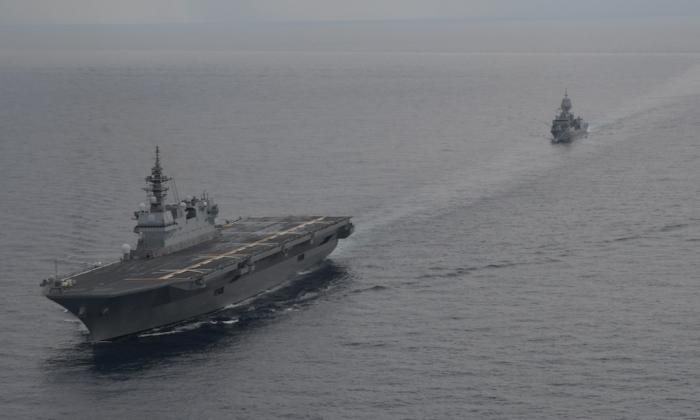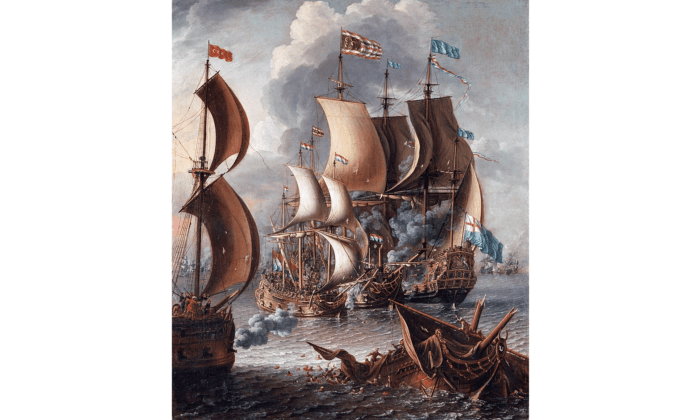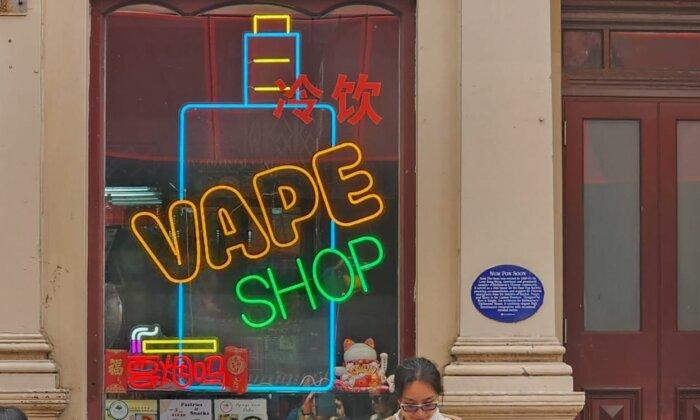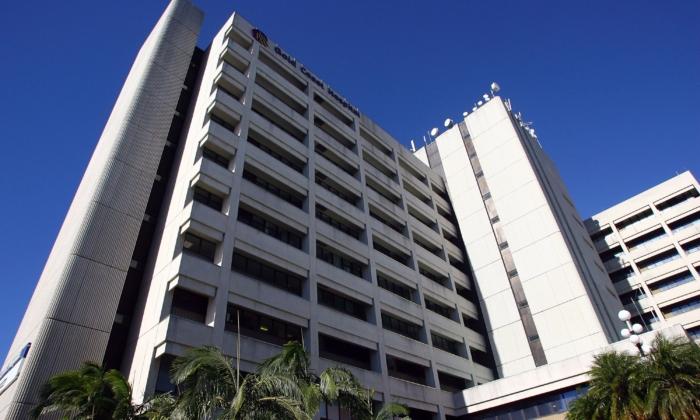Australia and Japan have conducted military exercises in the highly contested South China Sea as both countries seek to quell Beijing’s influence in the Indo-Pacific.
The military exercises took place from June 24-25 and followed the signing of a Joint Declaration on Security Cooperation (JDSC) in October 2022 that seeks closer defence and security ties between both countries.
The Chinese Communist Party (CCP) has previously criticised Australia for conducting joint military exercises with allies in the South China Sea, saying that Australia will face retaliation from the communist regime if it dares to interfere in military conflict in the region, such as Taiwan.
The recent bilateral exercise, known as Trident23, was conducted between Japan’s Maritime Self Defence Force, helicopter destroyer JS Izumo, destroyer JS Samidare and Australia’s Navy frigate HMAS ANZAC and Royal Australian Air Force P-8A patrol aircraft, according to Japan’s Military of Defence.
However, Australia’s Department of Defence has not publicly noted the joint exercise.
Rear Admiral Nishiyama Takahiro, Commander of the First Surface Unit of the Indo-Pacific Deployment 2023, said that Australia, an ally of the United States, is a “Special Strategic Partner” in the Indo-Pacific region, sharing not only universal values but also strategic interests in security.
CCP’s People’s Liberal Army-Navy In ‘Vicinity’ of Training Area
Meanwhile, a ship belonging to Beijing’s People’s Liberation Army was reportedly seen in “the vicinity” of the training area, but it did not contact the Australian Navy, according to the Australian Broadcasting Corporation (ABC).The Epoch Times has contacted Australia’s Defence Department seeking confirmation of this report.
The CCP’s aggression in the South China Sea has been concerning for surrounding and Western countries, given that $3.4 trillion (US$2.25 trillion) of commerce passes through the region yearly.
Moreover, the United States, Japan, and Australia have been conducting trilateral naval exercises in the region with the aim of countering Beijing’s encroachment.
Additionally, as concerns arise over whether the CCP would declare was on Taiwan, President Tsai Ing-wen’s government wants Australia to station a military officer in its de facto embassy in Taipei, reported The Australian.
“I think it is very important when the Australian government is paying so much more attention to the regional security issues for the two countries to be able to share their observations, their assessment of the situation,” Taiwan’s Foreign Minister Joseph Wu said in Taipei on June 26.
The ministry said the director had been in close contact with the Taiwanese Ministry of National Defense and other security agencies.
The Epoch Times has reached out to Australia’s Department of Foreign Affairs and Trade to confirm the appointment.
This comes as the United States is seeking to add other countries to the trilateral AUKUS deal as it aims to accelerate and deepen cooperation on key defence technologies, including hypersonics, electronic warfare, and undersea capabilities, in orto counter the CCP effectively CCP.
At present, only Canada and New Zealand—the remaining two members of the Five Eyes intelligence alliance—have expressed an interest in joining Pillar Two of the AUKUS deal.





